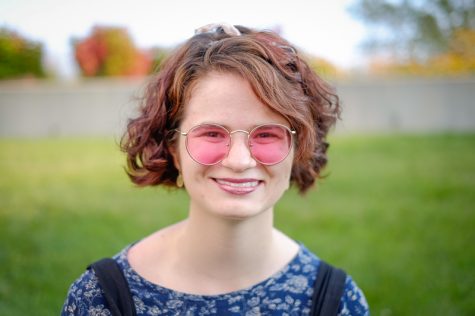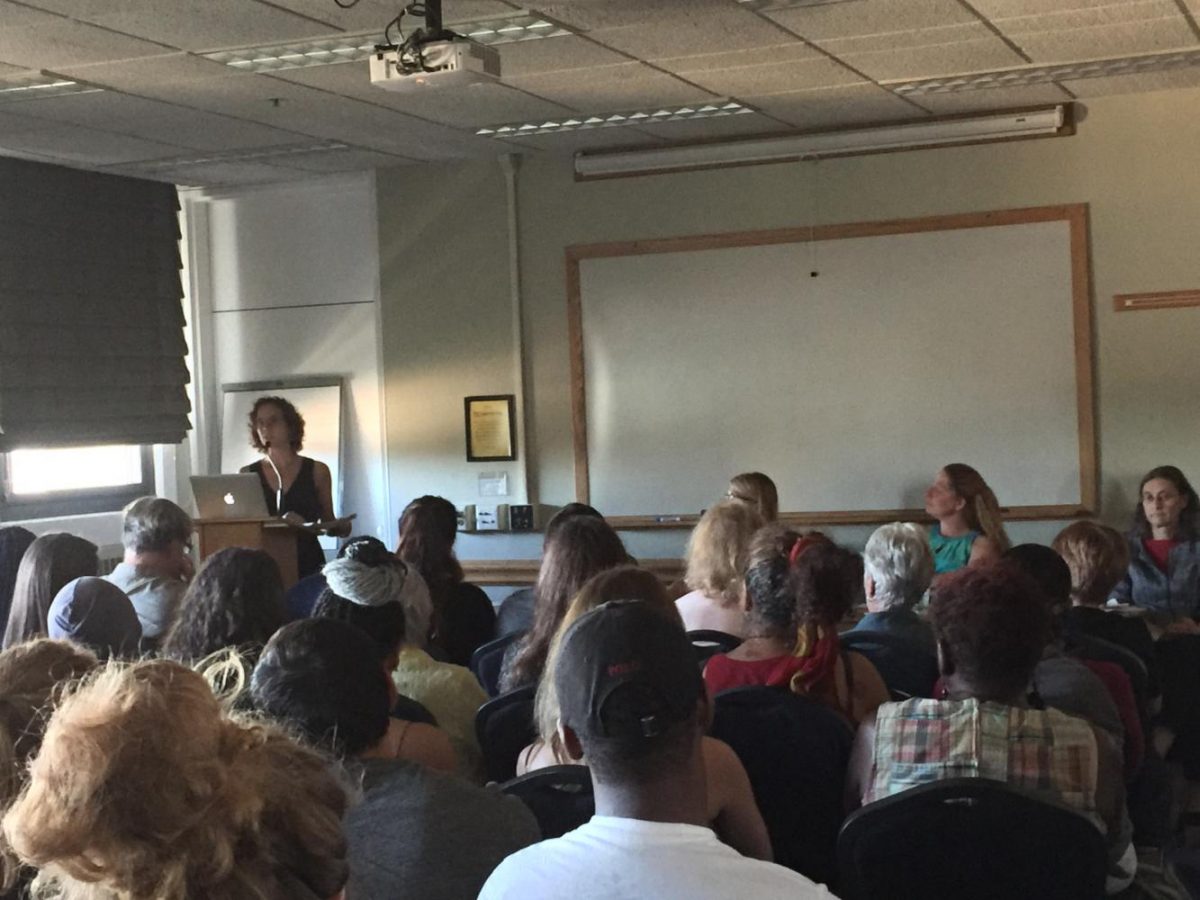Neglected behind bars: Incarcerated women face unique health challenges
AMHERST — The University of Massachusetts Amherst School of Public Health and Health Sciences is addressing an important problem: Incarcerated women have poor access to health care.
This challenge was addressed Wednesday evening at a panel called “Women Behind Bars: Public Health and Criminal Justice Reform,” as part of the Dean’s Symposia Series.
“Incarcerated women, especially those bearing children, are disadvantaged by the criminal justice system,” said C. Marjorie Aelion, Dean of the UMass Amherst School of Public Health and Health Sciences.
A report from The Sentencing Project says that the number of incarcerated women has risen 700 percent between 1980 and 2014. Many of these women are mothers, and some of them have either given birth recently or give birth while they’re incarcerated.
Andrea James, a UMass Boston alumna, was incarcerated in federal prison only five months after giving birth to her youngest son at age 45. She served 24 months, and while incarcerated, she organized a group of women who she was preparing for their GED test. Their goal was to use their experiences to fight back against mass incarceration.
“Organizing in prison is a serious infraction,” said James. The prison tried to block her mail and keep her from receiving textbooks to supplement the GED books from 1968, which were the only study material available to them. However, that didn’t stop James from organizing and educating.
“We use our voices and our experiences to talk about the radical change that needs to happen,” said James. They called themselves Team GED, and they worked hard to support and educate each other about their experiences.
James said some of the women she got to know experienced horrible abuse and neglect while they were “in-transit” to the prison they were assigned.
“Many of [the women] are raped, many of them are sexually abused,” said James. “Women are covered in vomit, covered in menstruation.” These women in-transit were shackled in the back of “con air” planes, wearing paper suits without access to menstruation products. When they arrive at the prisons, they are strip-searched, forced to remove their tampons and hold them out in front of correctional officers, being denied of all respect and dignity.
James is now the founder and executive director of the Families for Justice as Healing, as well as a published author and staunch prison abolitionist.
Kenzie Johnson, a Berkshire County resident and incarcerated women’s health advocate, experienced giving birth while incarcerated.
When Johnson went into labor, she was shackled and put in the back of a police car. She was unable to buckle her seatbelt or brace herself to prevent giving birth in the car. She continued to face neglect when she reached the hospital.
“I went from the emergency room bed, on my knees trying to get to the delivery room bed,” said Johnson. She proceeded to give birth in the middle of the floor, her husband barely able to catch their newborn son before he hit the ground.
Johnson’s son was taken from her shortly after, and she had to return to prison.
“I couldn’t do what I needed to do to properly take care of my son,” said Johnson.
She was only permitted to breastfeed her son once a month, and after seven months, the prison asked her to stop pumping to send breast milk to her baby. Her son was diagnosed with Leukemia at five months and was unable to consume anything but breast milk.
“I think this idea of criminalization is really something that public health needs to focus on,” said Melody Slashinski, a panelist and assistant professor of Community Health Education at UMass Amherst. She continued by pointing out that women are barred from making money to support themselves and their families during and after incarceration, and often times they end up trapped in the prison system.
“We know that this is a campaign that needs to be led by women,” said James. “We must end incarceration for women and girls.”
Email Faith at [email protected] or follow them on Twitter @FVGrego.

"Journalism without a moral position is impossible. Every journalist is a moralist. It's absolutely unavoidable." -Marguerite Duras
Email at [email protected]...










